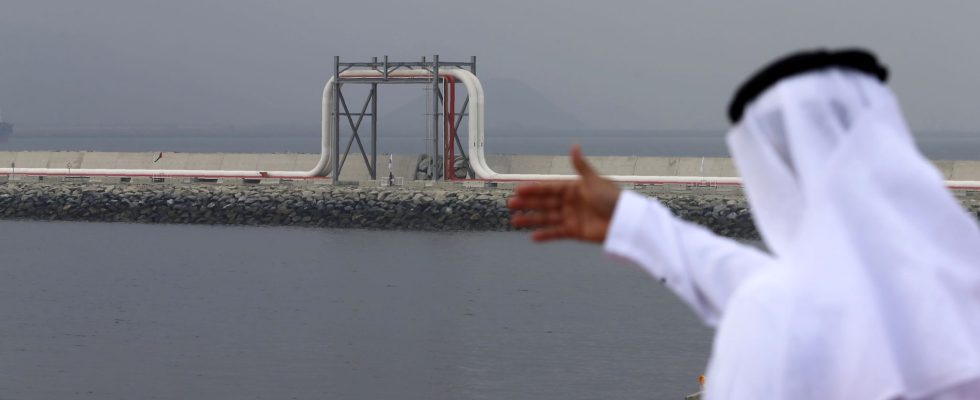Be careful, flammable subject! While pump prices and oil tanker margins ignite the political debate, another, otherwise Dantean, struggle is currently taking place between experts and producers of black gold: how many barrels will the world consume in 2030 ? The International Energy Agency (IEA) has just responded in the report it publishes twice a year on the trajectory towards carbon neutrality: to achieve this objective in 2050, oil demand must plunge from 100 to 103 million barrels that the world currently consumes every day at… 77 million by 2030 and 24 million in 2050. The message is obviously intended for its members, the developed consuming countries, as well as for China, but it is also addressed to producing countries.
The latter also lashed out against the said agency, around ten days earlier, during the World Petroleum Congress which was held in Calgary, in the province of Alberta, where 80% of Canadian oil is produced. Let’s give the floor to the Premier of the province, Danielle Smith: “We are making a transition to eliminate emissions [de CO2]not to eliminate oil and gas. […] We must live in the real world, not on computer models.” And the manager – echoing the words of the Saudi Minister of Energy, Prince Abdelaziz ben Salman, also present – to challenge the public “to find a only time when the IEA would have had a correct projection.” “It takes an act of faith,” she continued, “to think that if they were never right, they will be right in 2050.” The minister Saudi Arabia agreed, this time with an address to Western political leaders: Saudi Arabia wants to support the transition, but politicians must be honest about the challenges ahead and the risks if the change is not managed well. measure for governments who say they want to get out of fossil fuels while asking oil companies and other distributors to sell gasoline at a loss – in other words, by inviting the private sector to subsidize oil consumption when the government no longer has the money to do it…
Deciphering these acidic exchanges: the oil and gas industry, starting with the producing states and their national companies, is responding to its detractors and constructing an alternative narrative on the transformation of the global energy system. It must be said that the opportunity to regain control is offered to it on a platter by Europe, weighed down by an energy security crisis that it largely contributed to building by blindly putting itself in the hands of Russia for its imports. gas. And if the IEA is also in the crosshairs, it is because, as Bloomberg energy columnist Javier Blas mischievously reminds us, in parallel with his scenarios on what should be done to achieve carbon neutrality, it has also just published its forecasts on the most likely evolution of oil demand until 2028, showing consumption increasing, to more than 105 million barrels per day: “What is the use of its net zero emissions model if its projections say it won’t happen?
A political balancing act
In reality, everyone is playing politics on this subject. This is nothing but normal in this period of transition: leaders must send messages both to their public opinion and to their suppliers or customers, while flexing their muscles to their peers, in a context of competition to attract green investments. It’s not easy to say at the same time “we are acting for the climate”, “we are not going to rush you”, “deliver or buy us oil and gas at a price compatible with the competitiveness and social peace of my country” and “the epicenter of the green revolution is my home”!
The European Union has just given a good example of this political balancing act: while the President of the Commission is openly campaigning for its renewal after the European elections of May 2024 by praising her famous “Green Deal”, the Commission’s Director General for Energy, Ditte Juul Jorgensen, has just declared that the European Union will need American (shale) gas for decades. A statement astonishing in its clarity, which clarifies an increasingly unsaid statement about the role of gas in the transition, particularly in Europe: gas is, and will be, a transition energy for a long time.
Transition is an art of political “at the same time”. Yes… but only up to a certain point: that of the truth of the prices and costs of energy for households and businesses, intractable justices of the peace, even formidable instigators of social and political unrest.
